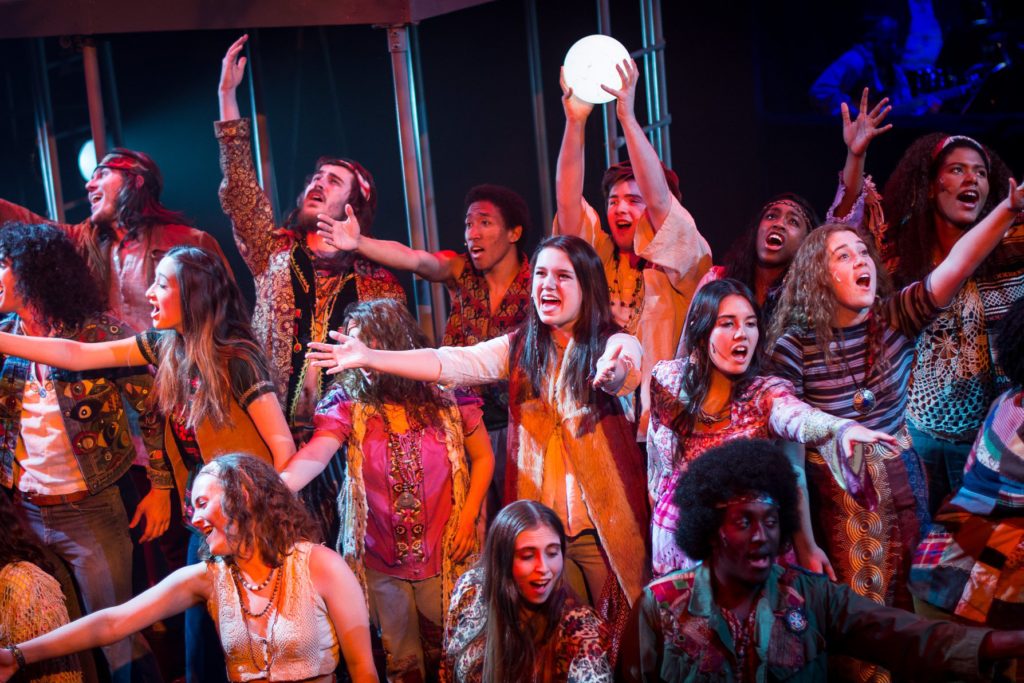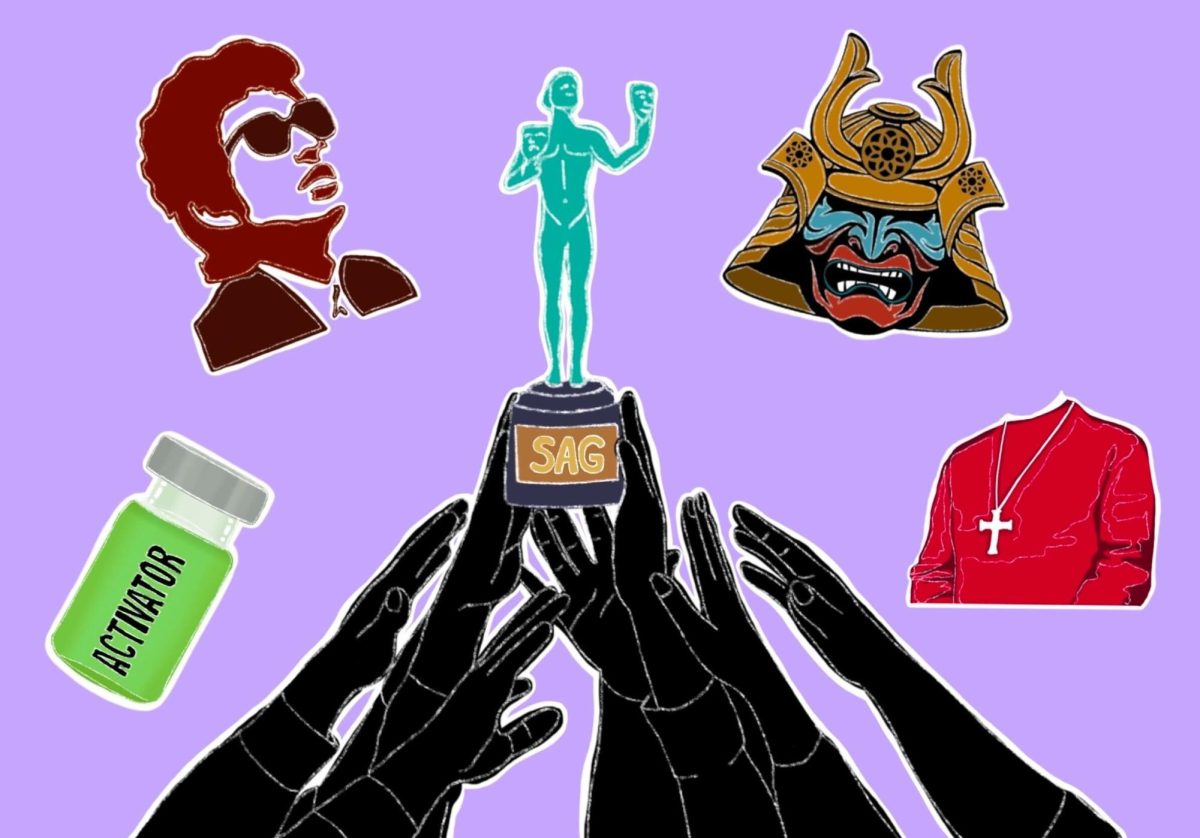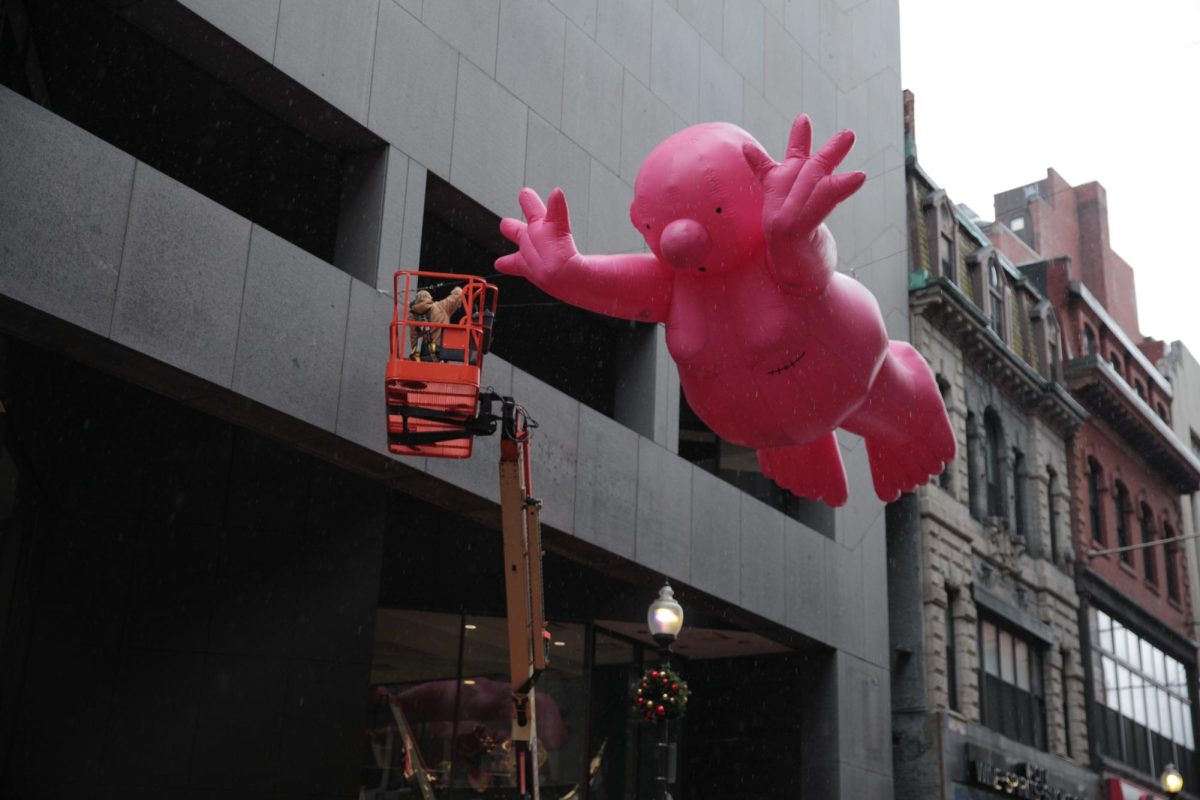By Kiana Jones, lifestyle co-editor
Feel what it meant to live in the 1960s counterculture, where people searched for acceptance, love and hope in the rummages of war and social revolution.
The Northeastern Theatre Department presents a rendition of the age-defining musical “Hair,” directed by Janet Bobcean, a professor of theatre. Set in New York City, the production focuses on the journeys of Claude, Berger, Woof, Sheila, Jeanie, Chrissy and the rest of the tribe — a group of long-haired, government defying hippies.
“The tribe is comprised of young adults who are trying to figure out how they are fitting into this world with all the social protests and identifying what’s important to them,” said Claire Moorer, a third-year theatre major who portrays Chrissy in the musical.
The completely sold-out musical premiered Thursday night and will continue until April 1.
Though the Northeastern department maintained the original script written by James Rado and Gerome Ragni, the cast worked with Bobcean to strengthen the portrayals of female characters. Fourth-year theatre major Christina Chen said they wanted to give them power through backstories, stage production and character interaction.
“It’s interesting that ‘Hair’ was written in the 60s and seen as this great, progressive play — and it totally is and it’s still relevant — but also the treatment of women in this play is definitely something that the director Janet, Zoe [Unverferth] and I have been trying to toy with because Berger and Claude can be really mean to us [Sheila and Jeanie],” Chen said.
Costume designer Anna Jekel said she made sure to pay great attention to detail in the costumes for the 19 cast members. Early on, Jekel and her team decided to uniform characters in authentic hippie garb to push back against the mainstream idea of what a hippie should look like. The characters are trying to transform their world, which is evident in their clothing.
“They do not represent the over the top, psychedelic [theme] that is sometimes associated with the play,” said Jekel, a fourth-year theatre major.
Several of the many plotlines in “Hair,” center around relationships troubled by war and abuse. For instance, Chen’s character Jeanie, who moves out of her parent’s home at 18 to pursue a new life for her unborn baby in New York, falls in love with the free-spirited Claude. They live happily together as part of the tribe until Claude receives his draft card for the Vietnam War.
However, the musical’s main focus is the tribe.
“It’s not a one-star show which is why I love it,” Chen said. “It really is about the group and Jeanie and Claude are one of the many story lines.”
Though written nearly 60 years ago, “Hair” continues to be relevant. In the 1960s, they had the Vietnam War and civil rights protests. Today there is a domestic war between President Donald J. Trump and the press, and social movements such as the #Enough and #MeToo campaigns and Black Lives Matter movement.
“We really are highlighting the negativity that surrounds weapons in our society right now and how that is still important — how it was important 50 years ago, and how it’s still a problem,” Chen said.
It has been several decades, but not a lot has changed. Moorer said audiences can expect the production to encompass themes such as sexual freedom, social freedom and racial freedom, in addition to gun violence and feminism.
“It will be really exciting to see how the audience reacts and what they think about it, because so many of the themes and issues of the play are still applicable today,” Moorer said.
Instead of traditional seating, pillows and blankets cover the first few rows of the theatre in order to immerse audience members in the world of “Hair.” Attendees are advised that the show contains scenes with strobe lighting and nudity.
Future productions of “Hair” will take place through April 1 at 7:30 p.m. Tuesdays through Thursdays, 8 p.m. Fridays and Saturdays and at 2 p.m. Sundays. All performances will take place at the Studio Theatre in the Curry Student Center.
Though tickets are sold out, hopeful viewers can arrive at least 30 minutes before curtain to be placed on a waitlist to get in.










